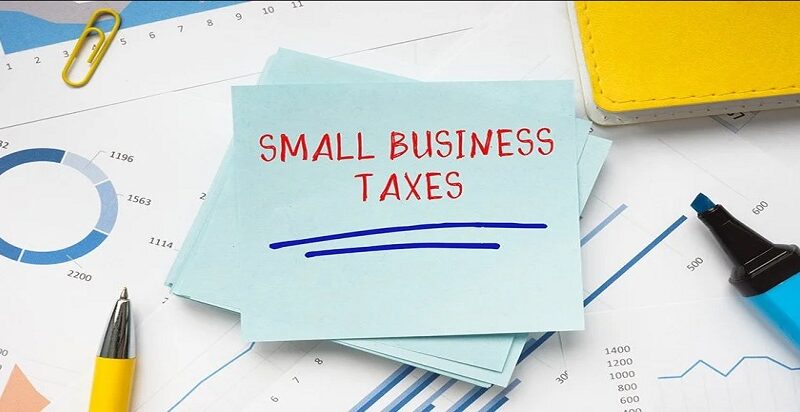The best practices for small business taxes in the USA
It’s challenging enough to run a business without adding the burden of yearly tax filing. Working with your accountant all year long, rather than just when you prepare your tax return, is crucial, according to experts. According to John Blake, CPA in Hamilton, New Jersey, making financial decisions without contacting an accountant or financial advisor might put you at risk and end up costing you more money overall. Here are some recommendations for small business regarding dealing with an accountant or financial expert, filing taxes, and small business accounting.
Here are some best practices for small business taxes in the USA
Determine your business structure
You will have varying tax duties and benefits depending on your business structure (sole proprietorship, partnership, LLC, or corporation). To assist you determine the ideal structure for your company, speak with a tax expert.
Hire the right accountant
According to Chandra Bhansali, co-founder and CEO of Accountants World, your accountant should offer to do more than just generate financial statements and handle your taxes. According to Bhansali, if that’s all they promise to accomplish, they aren’t the ideal accountant for a small firm.
Your accountant should collaborate with you throughout the year to track income and expenses, according to Bhansali. Ensure you don’t have a cash flow issue, and keep an eye on your gross and net profits. Work with your accountant before, throughout, and after tax season—not just in March and April. “Most small business don’t understand the importance of accounting for the survival and growth of their businesses,” he claims.
Claim all income that is reported to the IRS
In order to compare the income you’ve reported to what they know you’ve received, the IRS receives a copy of the 1099-MISC documents you get. According to Blake, double-check that the amount of income you report to the IRS matches the amount reflected in the 1099s you have received. The IRS will raise a red flag if you don’t. You must still disclose the income even if a client doesn’t send out 1099s. State taxes follow the same guidelines.
Keep adequate records
Maintain accurate records Record each financial transaction, including revenue, outgoing costs, and receipts. In the event of an audit, this will help you appropriately prepare your tax returns and save you time and money.
Your tax return will be accurate if you keep detailed and accurate records throughout the year. According to Blake, if you keep bad records, you can be missing out on deductions or, worse still, you might put yourself at risk for an audit. Blake advises investing in accounting software for any firm because it is simple to use, affordable, and useful for keeping track of all your earnings and outgoings.
Separate business from personal expenses
Regardless of whether you properly reported business spending, the IRS may begin investigating your personal accounts if it audits your company and discovers personal expenses mixed in with business expenses, according to Blake. Get a separate bank account and credit card for your firm, and use those for just business purposes.
Understand your deductions
Understand which costs you can write off against your taxable income. This covers costs for things like office supplies, travel, and home offices. To make preparing your tax return simpler, keep note of these costs throughout the year.
Understand the difference between net and gross income
Regardless matter how many units you sell, you will lose money if your product costs more to produce than your price for it. According to Bhansali, small business owners frequently overlook the difference between their net and gross income.
For instance, your gross income would be $50 if your product cost $100 to create and you sold it for $150. However, he claims that after subtracting your expenses, your net revenue might only be $10. In order to increase your profitability and expand your business, it’s crucial to understand your gross and net income, according to Bhansali.
Correctly classify your business
According to Blake, failing to designate your firm correctly could lead to overpaying taxes. Your taxes will be affected differently depending on whether you decide to classify your business as a C Corporation, S Corporation, Limited Liability Partnership, Limited Liability Company, Single Member LLC, or Sole Proprietor. To determine how their businesses should be classified, small enterprises should speak with an attorney and an accountant.
Manage payroll
Blake advises employing a business to help with payroll, but make sure the business is reputable. Some business owners will use a less well-known payroll service in an effort to save money, only to learn later that the firm failed to submit payroll taxes on their behalf. According to Blake, the business owners are responsible for paying the payroll taxes if that occurs. The IRS normally checks to determine if payroll taxes have been paid every three months.
Seek your accountant’s advice on your business plan
According to Bhansali, a qualified accountant may offer guidance on how to expand your company. Ask their opinion on how much to put into your retirement account and whether you should accept a bonus or put it off for a year. Your accountant can help you determine whether purchasing a small place for your shop or company would be more cost-effective than renting.
Pay estimated taxes:
You will need to make quarterly anticipated tax payments if you work for yourself or if your employer does not deduct taxes from your paycheck. Penalties and interest costs may be incurred for failure to comply.
Use tax software or hire a professional
To assist you in filing your tax returns, think about using tax software or hiring a tax expert. This might help you save time and make sure you are claiming all possible credits and deductions.
Keep up with tax law changes
It’s crucial to be informed about any changes to tax rules that could have an impact on your company because they can change often. To keep up with tax laws, seek advice from a tax expert or do an online study.
Take advantage of capitalization rules
You could be able to deduct a sizable amount from your taxes if you buy physical property or equipment for your company. Make sure your accountant is aware of the capitalization regulations.
For more information for your small business from Nationwide, the nation’s top overall small-business insurer1, visit the Small Business area of the Nationwide Learning Centre.




